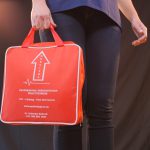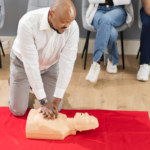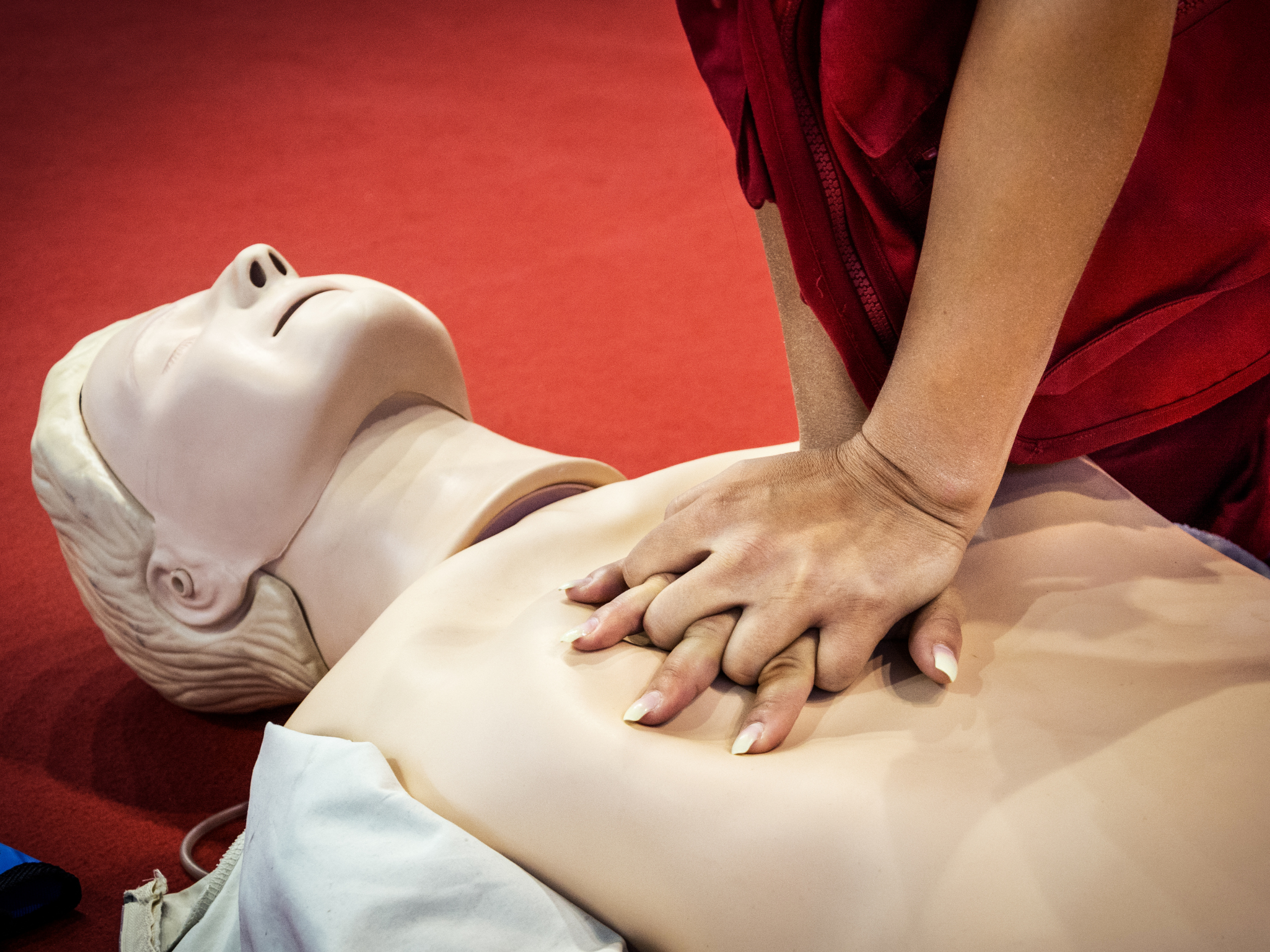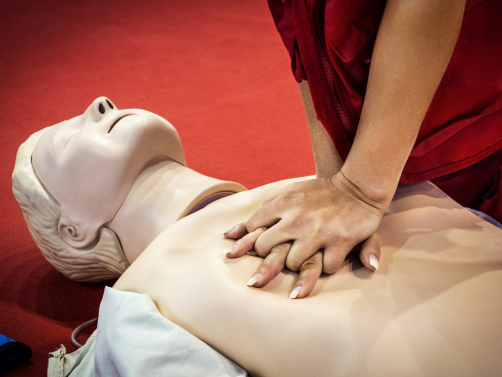In an emergency, the actions you take in the first few minutes can mean the difference between life and death. Cardiopulmonary resuscitation (CPR) is one of the simplest and most effective ways to help save a life — and yet, many people still don’t feel confident enough to use it when it counts. The truth is, CPR isn’t just for healthcare workers. It’s a skill that everyone can and should learn.
Why CPR matters
When someone goes into cardiac arrest, their heart stops pumping blood to the brain and other vital organs. Every minute without CPR reduces their chance of survival by 10%. But immediate chest compressions can keep oxygen flowing, most importantly to the brain, until medical help arrives. In fact, performing CPR can double or even triple a person’s chance of surviving a cardiac arrest.
Who should learn CPR?
Short answer: everyone.
Long answer: parents, teachers, nannies, caregivers, coaches, security personnel, employees in high-risk industries, and everyday people. Cardiac emergencies don’t just happen in hospitals — they happen in homes, offices, parks, and public spaces. Knowing CPR means you’re prepared to step in, wherever you are.
CPR is simpler than you think
Many people avoid CPR training because they think it’s too technical or intimidating. But modern CPR training is straightforward, practical, and often completed in just a few hours. Hands-only CPR has made it even more accessible — no mouth-to-mouth is required for adult cardiac arrest in most cases.
You don’t need to be perfect to save a life
It’s not about doing it flawlessly — it’s about taking action. The worst thing you can do is nothing. With CPR skills, you’ll feel more confident and capable during a crisis, and you could be the reason someone survives.
The ripple effect of learning CPR
Learning CPR doesn’t just prepare you — it inspires others. When your friends, family, or colleagues see that you’re trained, they’re more likely to sign up too. The more people who are CPR-ready, the safer our communities become.
Final thoughts
Learning CPR is one of the most powerful things you can do — not just for yourself, but for everyone around you. Whether it’s a loved one, a stranger, or a coworker, your quick response could give them another chance at life.
Book your training with Survival CPR today.

Mental Health Day
We all have ‘mental health’, just as we all have ‘physical health’. And just like our physical health, we can all have times when our mental health is better than others. World Mental Health Day is a day of awareness that is observed on the 10th of October every year.

SHOP
Check out our online shop! Purchase our LATEST LAUNCH, our Online Baby and Child CPR and First Aid Course and start learning from your device at home and anywhere in the world! You can also purchase our popular Family First Aid Kits and we also offer Digital Gift Vouchers for any of

Family First Aid Kit
The Family First Aid Kit has been put together by Trauma and ICU experts to ensure your family outings always give you peace of mind.

Adult CPR & First Aid Course
Adult CPR & First Aid Course Our CPR and First Aid Course will provide you with Adult CPR and standard first aid information to meet all the requirements for certification. You will learn the appropriate skills and techniques to handle a variety of situations, from unresponsive victims to serious wounds.

CPR for Professionals Course
The Resuscitation Council CPR for Professionals Course is designed for medical professionals (physiotherapists, chiropractors, homeopaths, doctors, nurses, dentists, pharmacists etc), who are registered with the Health Professions Council of South Africa. Members of the public are also allowed to attend this course. Medical professionals who need to learn or stay

Basic Life Support Course
Basic Life Support Course This American Heart Association Course is designed for medical professionals (physiotherapists, chiropractors, homeopaths, doctors, nurses, dentists, pharmacists etc), who are registered with the Health Professions Council of South Africa. Members of the public are also allowed to attend this course. UPCOMING COURSE DATES advanced life support
Burns: do you know the different types & how to treat them?
With National Burn Awareness Week (6-12 May) still top of mind, as well as the knowledge that as we approach winter our children will be increasingly exposed to heating appliances and fires, we asked Sr. Catherine Rodwell from Survival CPR to break down the different types of burns and explain




